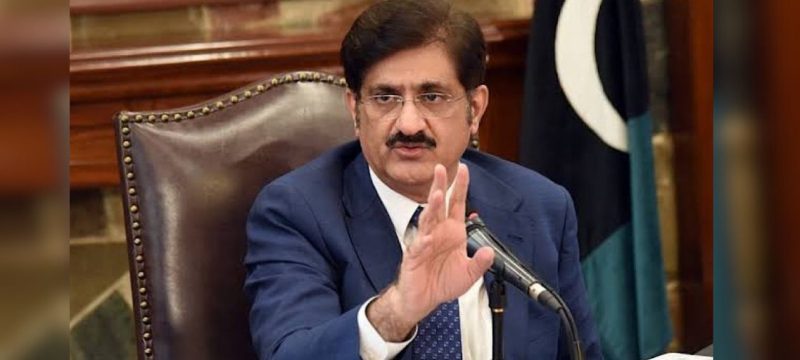A day after unveiling Sindh’s 17th consecutive budget under the Pakistan Peoples Party (PPP) government, Chief Minister Murad Ali Shah expressed strong criticism towards the federal government for making abrupt cuts to the province’s allocated funds. He described the move as “incomprehensible” and a serious setback to development efforts.
Speaking at a post-budget press conference in Karachi, Shah stated that the Rs3.45 trillion budget for 2024–25 had been formulated on the assumption that Sindh would receive Rs1,900 billion in federal transfers. However, a last-minute letter dated June 12 notified the province that only Rs96.17 billion would be released, following an earlier shortfall of Rs422.3 billion this fiscal year.
Read more: Sindh CM unveils Rs. 3.45 trillion budget for fiscal year 2025-26
Shah, who also serves as Sindh’s finance minister, criticized the lack of prior notice or justification for the decision. He warned that such unpredictable financial changes disrupt budgetary planning, especially while the province is part of the IMF programme and must present a Rs299 billion surplus. He questioned how the province could meet its IMF commitments when federal promises weren’t fulfilled.
The Chief Minister noted that with fixed obligations like salaries and pensions, development initiatives would bear the brunt of the financial strain. Nonetheless, Rs1,018 billion has been set aside for development, targeting the completion of 1,460 ongoing projects. Out of the total budget, Rs2.15 trillion is allocated for recurring expenditures, with Rs1.1 trillion directed toward salaries and pensions.
Salaries for government employees in grades 1 to 16 will rise by 12%, while those in grades 17 to 22 will see a 10% increase.
Key Allocations for Karachi and Water Projects
Shah announced that Rs236 billion from the Annual Development Programme is dedicated to Karachi, focusing on clean water, roads, and transportation. He also revealed a Rs90 billion water supply initiative and the introduction of 1,000 new buses in the city. These projects are largely funded through public-private partnerships and thus not reflected in the PSDP.
Additionally, Rs86 billion has been allocated for federal development works in Sindh, primarily road construction, with Rs95 billion in projects currently active in Karachi.
Addressing criticism about the absence of mega projects, Shah countered that rapidly completed projects deserve recognition and should be considered mega in their impact.
Boosts to Key Sectors
Murad Ali Shah highlighted significant increases in key sectors: education by 18%, health by 11%, home department by 15.5%, energy by 16.5%, and irrigation now at Rs43 billion. Agriculture has received an additional Rs16 billion, while Rs132 billion has been allocated for local government development. He emphasized that while non-development expenditure has been streamlined, development budgets have been substantially enhanced.
Progress on Flood Victim Housing
The Chief Minister also detailed the province’s flood rehabilitation efforts, revealing that 500,000 houses have been completed for flood-affected families. Another 850,000 are nearing completion, and 1.3 million more are under construction. He noted that this large-scale housing initiative has received international praise for its humanitarian focus.
Stance on Israel and Solar Tax
Shah condemned Israel’s aggression towards Iran, labeling it as “state terrorism,” and lamented that opposition members disrupted the provincial assembly’s resolution on the matter. He stressed that peace and human rights must rise above political agendas.
He also opposed the federal proposal to impose an 18% sales tax on solar panels, arguing that renewable energy should be encouraged, not taxed.
Joined by senior ministers Sharjeel Memon and Nasir Hussain Shah, Murad Ali Shah concluded by urging the federal government to meet its financial obligations under the National Finance Commission (NFC) award, emphasizing that only then can provinces effectively plan and implement development programs.









